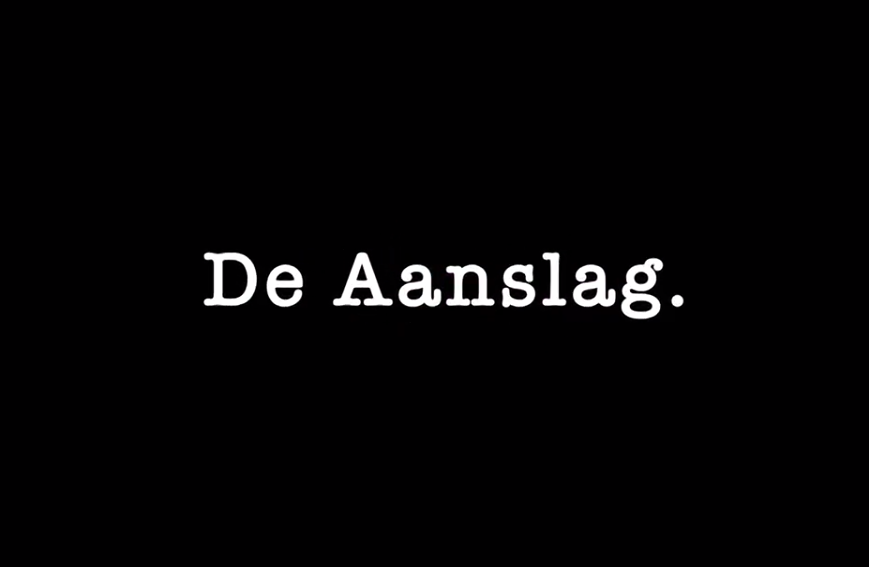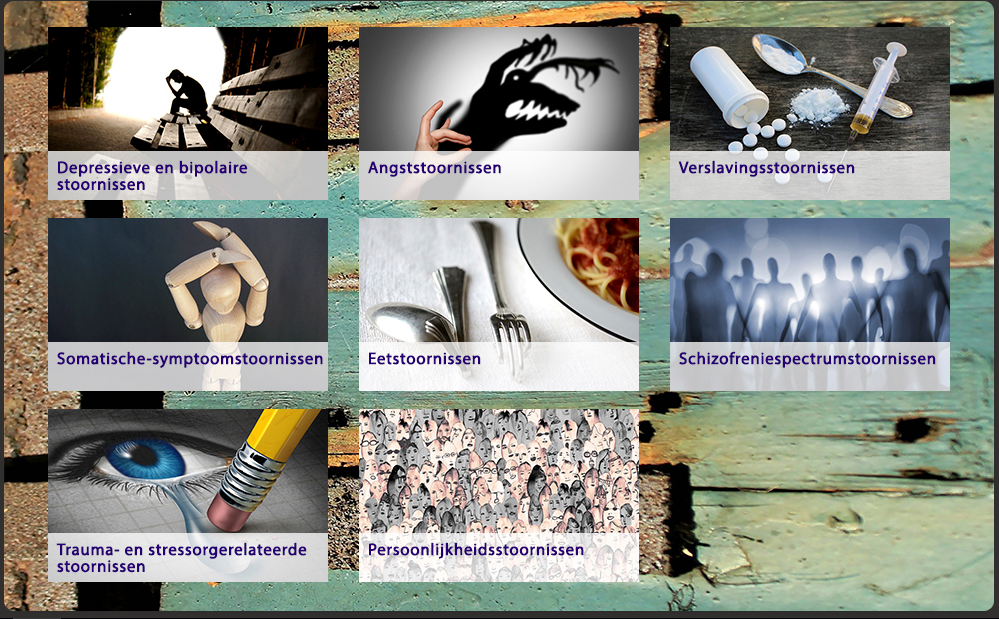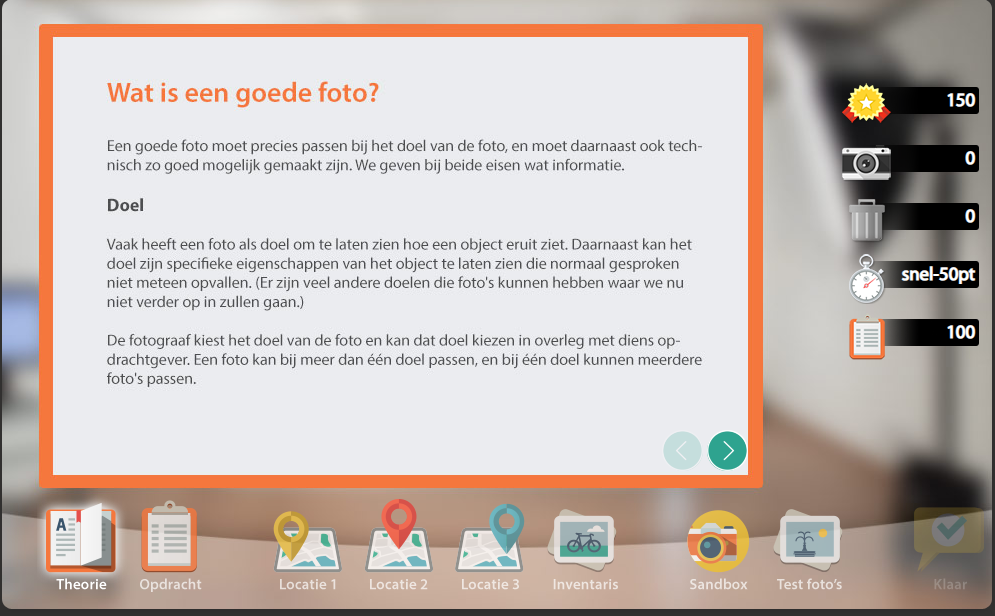Emergo
The Open University of the Netherlands developed EMERGO (Effectieve Methode voor Ervaringsgericht Onderwijs) as a dedicated design method and development toolkit to design, develop, implement and evaluate such scenario-based serious games for acquiring complex professional skills.
The EMERGO authoring platform currently contains over 30 reusable components that allow for effective and flexible game production. Over 40 serious games across various domains and types of education have been developed with EMERGO over the last 10 years, and others are currently under construction.
Over the years the merge between Research and Development has been essential for the continuous advancement of EMERGO. Without research producing games becomes production without evidence-base, new inspiration and innovation. Without concrete development research becomes disconnected from educational practice. Since 2020, the Faculty of Learning Sciences collaborates with the Department of Educational Production (ECO) on game-based learning programs.
Relevant materials
- The thin line between gaming and learning - A recent BERA blog (July 2020) on the importance of good Instructional Design for active (game-based) online learning (in english)
- Mini-games for professional awareness in Psychology - A good example video (November 2019, in Dutch) for the Versnellingsagenda.
- Serious game in introductory psychology for professional awareness: Optimal learner control and authenticity - published May 2020 in British Journal of Educational Technology, the journal of the British Education Research Association.
Background
Active online learning and professional games
Active learning through meaningful and playful practice has shown to positively influence students' professional awareness (eg, Boersma, ten Dam, Volman, & Wardekker, 2010; Meijers, Kuijpers, & Gundy, 2013; Sherman, Sebora, & Digman, 2008). Positive effects of acquiring more transversal skills (that are not specifically related to certain jobs or domains) on both professional awareness, and as a consequence commitment during academic and professional careers, have been reported. When students have more concrete ideas of their own interests and preferences, they can better engage with future careers. Such “professional games” provide a learning context that simulates the context in which students will apply their learning. In that way, learning activities become more relevant and motivating, and increase the likelihood that acquired skills will actually transfer to real‐world work situations (Herrington, Oliver, & Reeves, 2003; Hoekstra, 2011). Such gaming or playful learning in context is recognized as an activity that can enhance students' motivation to learn and lead to better learning results when compared with more traditional learning (e.g. Boyle et al., 2016; Garris, Ahlers, & Driskell, 2002; Wouters & van Oostendorp, 2013).
Serious games is not the same as gamification
A way to provide students with such motivational and meaningful learning experiences is to offer them a learning scenario with ill-defined, authentic tasks from realistic problem contexts, and give them autonomy in finding solutions through meaningful gameplay (a game example is provided in Hummel et al., 2020). Games as well-designed, integrated learning systems have the potential to make knowledge a valuable commodity and learning a desirable process. In this sense, to design a serious game is rather different from the ‘gamification’ of education, whereby just one or some gaming elements (like badges or a Kahoot quiz) are added to existing education for a more playful appearance.
People
The EMERGO team
Over the last 15 years the EMERGO team consisted of following persons:
- Dr. Hans Hummel (game designer and researcher and project leader EMERGO / application manager )
- Dr. Aad Slootmaker (chief architect and programmer EMERGO platform)
- Dr. Rob Nadolski (game designer and researcher)
- Ir. Hub Kurvers (architect and programmer EMERGO platform)
- Jeroen Storm (user interface expert and graphical designer)
- Jeroen Berkhout (AV productions)
- and, depending on the content of the projects, many content experts from OU faculties and other educational institutes in NL and abroad
Since 2020 the team has been joint by
- dr. Kostas Georgiadis of ECO (Expertise Centre for Education), EMERGO architect / programmer
- advisors from ECO (Expertise Centre for Education) who advise the OUNL staff on EMERGO-games: Monique Korenhof MA MSC MEd, Wendy Kicken, Tamara van Driel, and others.
Projects
Over the years over 70 games has been developed with EMERGO. Sometimes with international partners, sometimes with other Dutch institutions, sometimes for the OUNL curriculum. And sometimes games are developed purely for (PhD) research purposes.
Here we give you a few examples of each. For a full list of projects, download this pdf.
Kastanjehoeve
(2020)
The student starts working as a trainee in care centre Kastanjehoeve. He is going to perform a series of tasks and in this way he gets acquainted with the management decisions that have to be taken in an organisation.
- Developed in collaboration with the Faculty of Management
- The game forms part of the bachelor course Management en organisatie (Management and organisation).
- Click on the image for more information on the game (in Dutch).
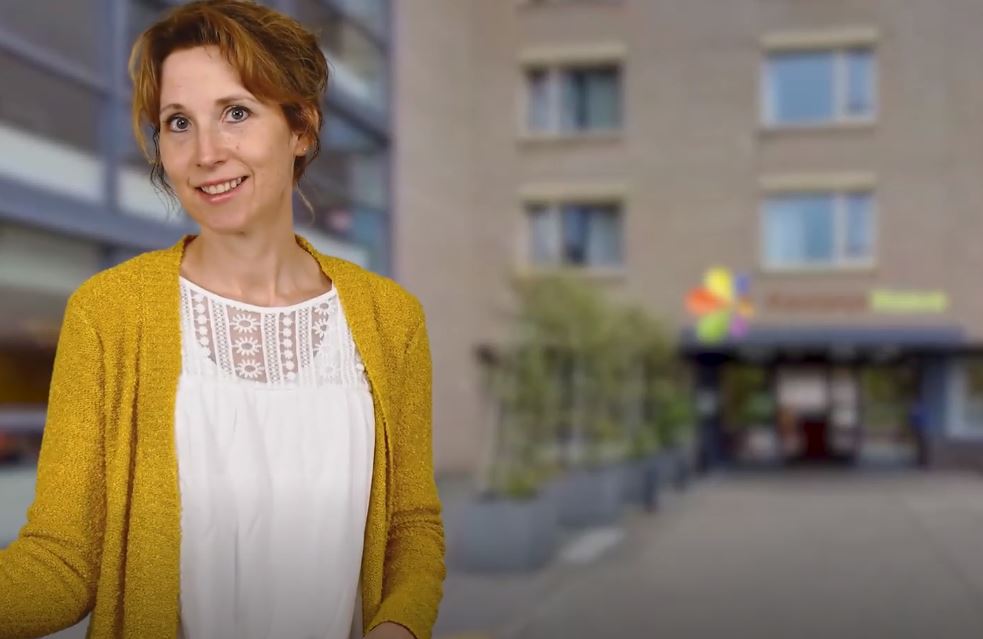
TYCON games: on entrepreneurial competences for the construction sector
(European project - 2018-2021)
A series of mini-Games that Foster Entrepreneurial Competence for the Construction Sector.
The games are curently being developed and will available for everyone that is interested.
- Read more about the project...
- Click on the image to go to the game.

The attack: about criminal law and terrorism
(2019)
Developed in collaboration with the Faculty of Law of the Open University.
A realistic simulation of a Ducth criminal law case about terrorism. The game forms part of the master course on this subject: De strafrechtelijke aanpak van terrorisme. The student assumes in different phases of the case different roles.
Snuffelstage / Introduction in Psychology
(2016-2019)
Developed in collaboration with the Faculty of Psychology of the Open University.
16 mini-games for professional awareness
Currently in use in the bachelor course Introductie in psychologie
- Watch the video about the project (in Dutch).
- Click on the image to go to the game.
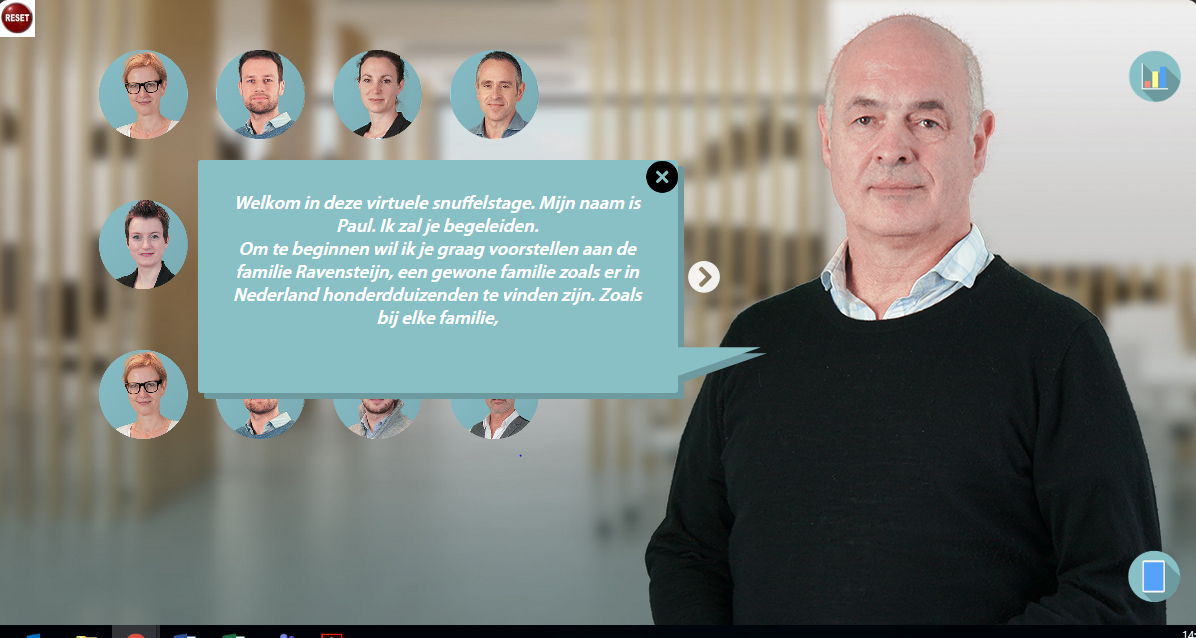
SLEM project: on ICT management
(2014-2015)
4 games (3 learning games and an assessment game) on ICT management, in collaboration with Stichting Praktijkleren.
- Read more on the SLEM project.
- Watch the video SPL made in about the games (in Dutch)*.
- Click on the image to go to the assessment game: Bureau Galema.
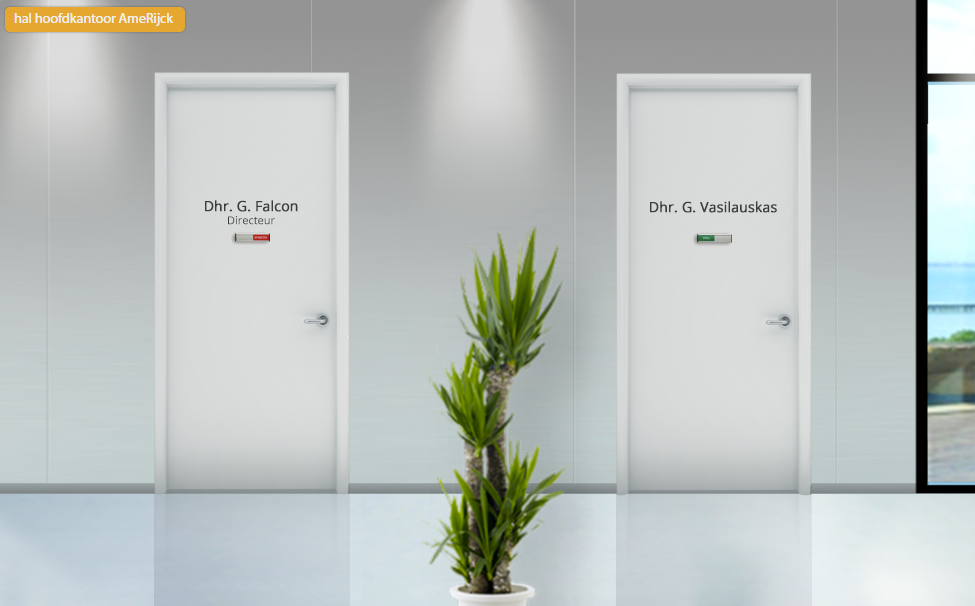
* The video is no longer available
Clinical psychology: on diagnosing clinical health problems
(2013-2014)
Developed in collaboration with the Faculty of Psychology of the Open University.
A game currently in use in a bachelor course.
The playground game: on research methods and statistics
(European project, CHERMUG, 2012-2014)
A series of digital mini-games which have been designed to provide activities to support college and university students taking introductory modules on research methods and statistics. The central case is about a community that plans to open a new playground with a view of reducing obesity.
- The project led to a number of scientific publications.
- The (free) games are availabe in seven languages.
- They can be downloaded from github*.
- Go and play a part of the game.
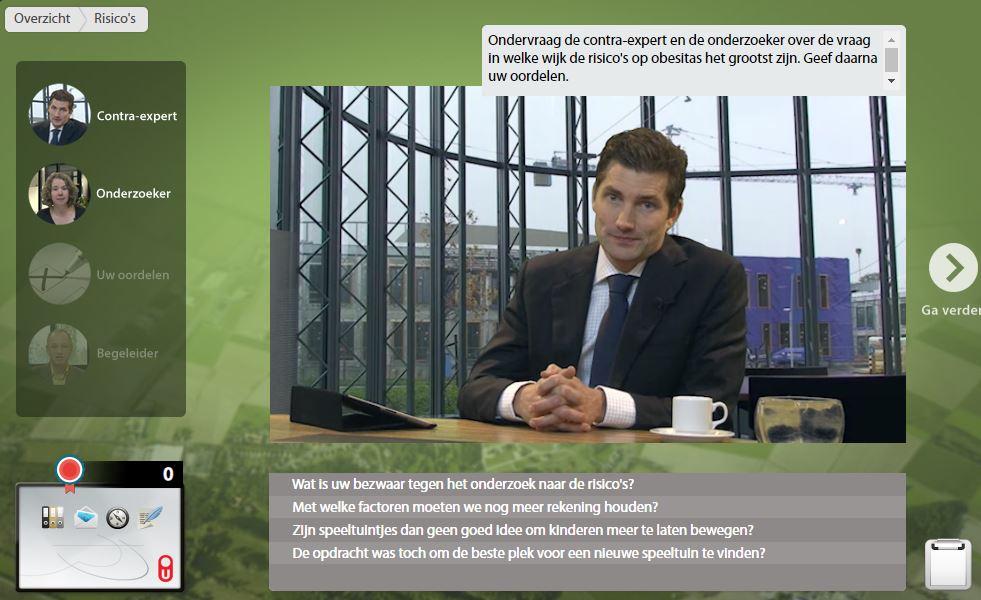
- This video explains how you can use the game in your education.
* No longer available
Photography game
(2011)
Developed for research purposes for the Graaf Huyn College.
Skillslabs: on water management
(2008-2010)
4 games on water management, in collaboration with Delta Academy van Hogeschool Zeeland and Kennis Netwerk Delta Water. The games are currently in use in one of the master courses of the OU
- Read more on the project and the games.
Emergo: on policy related research
(2006-2008)
The first games constructed with Emergo
5 games on policy related research in collaboration with 4 universities
- Read more on the project and the games.
Download the pdf on EMERGO for a complete overview of games.
Publications
A selection of relevant publications
- Hummel, H.G.K., Nadolski, R. J., Eshuis, J., Slootmaker, A., & Storm, J. (2020). Serious game in introductory psychology for professional awareness: Optimal learner control and authenticity. British Journal of Educational Technology. doi: 10.1111/bjet.12960
- Hummel, H. G. K., Boyle, E., Einarsdottir, S., Petersdottir, A., & Graur, A. (2018). Game-based Career Learning Support for Youth: Effects of playing the Youth@Work Game on Career Adaptability. Interactive Learning Environments, (26)6, 745-759 doi.org/10.1080/10494820.2017.1402062
- Nadolski, R. J., & Hummel, H. G. K. (2017). Retrospective Cognitive Feedback for Progress Monitoring in Serious Games. British Journal of Educational Technology, (48)6, 1368-1379 doi.org/10.1111/bjet.12503.
- Slootmaker, A. (2018). EMERGO: a generic platform for authoring and playing scenario-based serious games. doctoral thesis, Open Universiteit.
- Slootmaker, A., Hummel, H. G. K., & Koper, E. J. R. (2017). Evaluating the usability of authoring environments for serious games. Simulations and Gaming, (48)4, 553-578 doi.org/10.1177/1046878117705249.
- Slootmaker, A., Kurvers, H., Hummel, H. G. K., & Koper, E. J. R. (2014). Developing scenario-based serious games for complex cognitive skills acquisition: Design, development and evaluation of the EMERGO platform. Journal of Universal Computer Science, (20)4, 561-582
- Hummel, H. G. K., Nadolski, R. J., Joosten-ten Brinke, D., Baartman, L. (2016). Content validity of game-based assessment: Case study of a serious game for ICT-managers in training. Technology, Pedagogy and Education, (26)2, 225-240 doi.org/10.1080/1475939X.2016.1192060
- Hummel, H. G. K., Geerts, W. M., Slootmaker, A., Kuipers, D., & Westera, W. (2015). Collaboration scripts for mastership skills: Online game about classroom dilemmas in teacher Education. Interactive Learning Environments, (23)6, 670-682 doi.org/10.1080/10494820.2013.789063
- Hummel, H. G. K., Van Houcke, J., Nadolski, R. J., Van der Hiele, T., Kurvers, H. (2011). Scripted collaboration in gaming for complex learning: Effects of multiple perspectives when acquiring water management skills. British Journal of Educational Technology, (42)6, 1029-1041 doi.org/10.1111/j.1467-8535.2010.01122.x
- Nadolski, R. J., Hummel, H. G. K., Van den Brink, H. J., Hoefakker, R., Slootmaker, A., Kurvers, H., & Storm, J. (2008). EMERGO: methodology and toolkit for efficient development of serious games in higher education. Simulations & Gaming,39(3), 338-352 doi.org/10.1177/1046878108319278.
- Westera, W., Nadolski, R. J., Hummel, H. G. K., & Wopereis, I. (2008). Serious Games for Higher Education: A Framework for Reducing Design Complexity. Journal of Computer Assisted Learning, 24(5), 420-432 doi.org/10.1111/j.1365-2729.2008.00279.x

